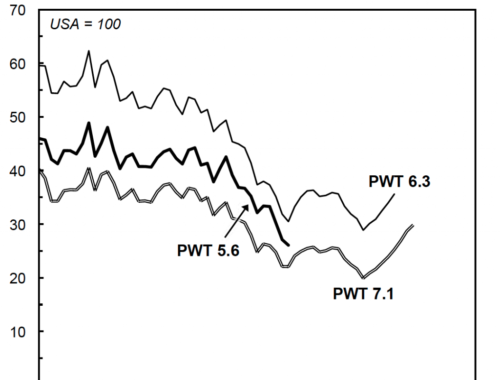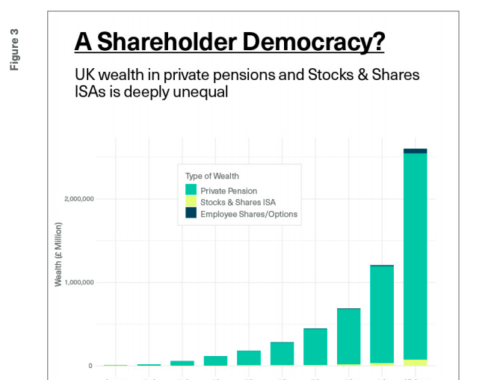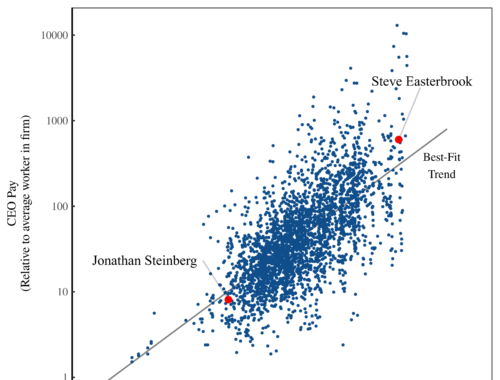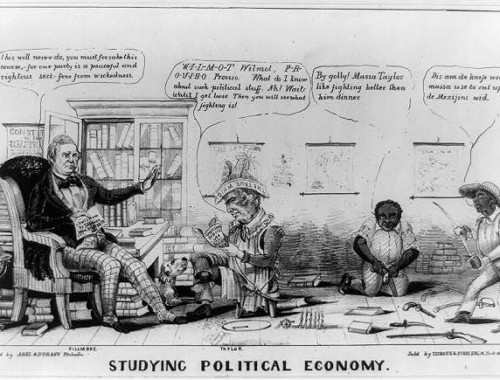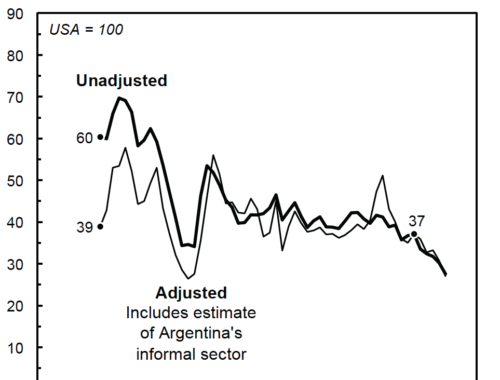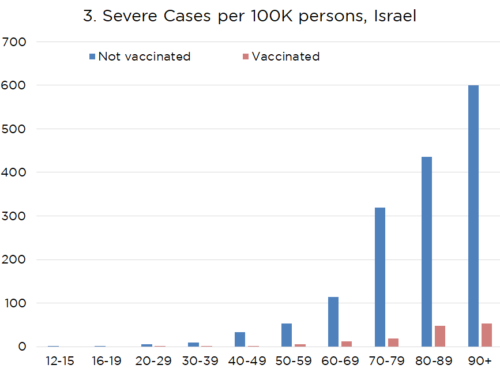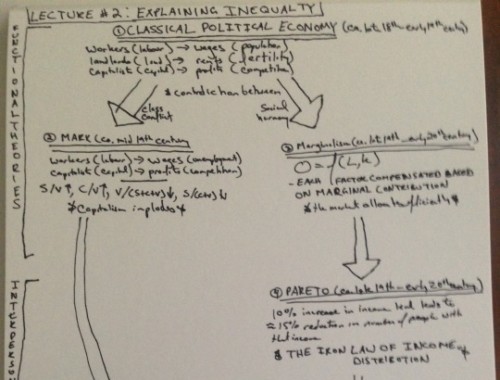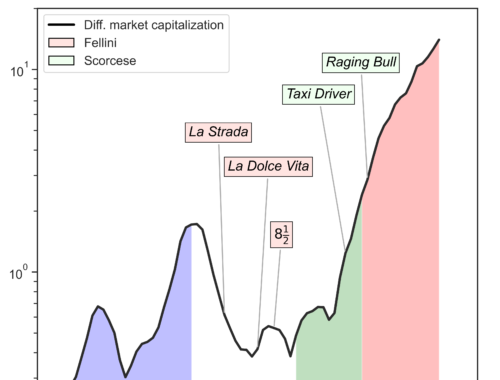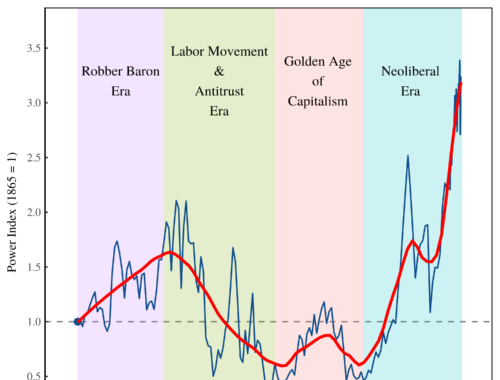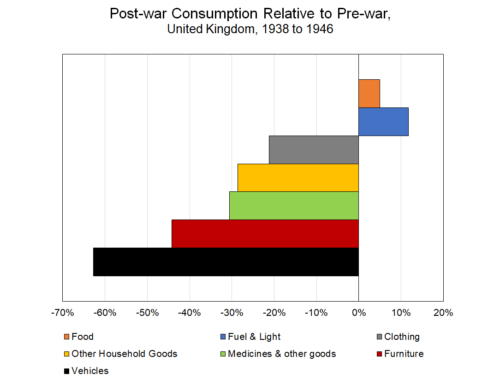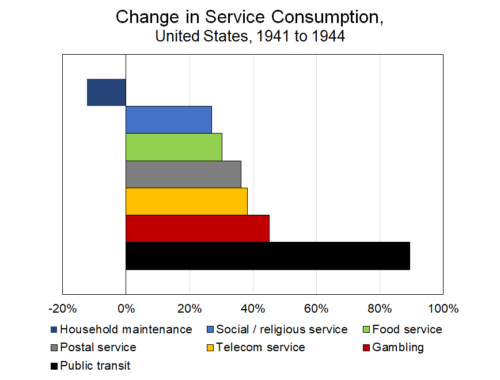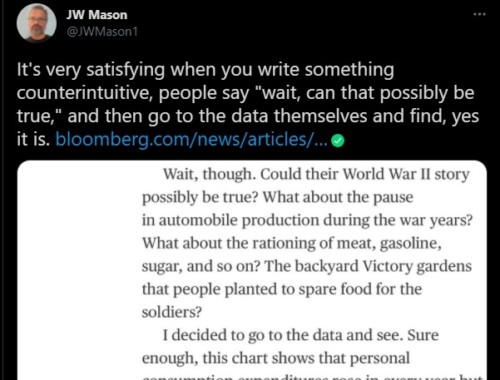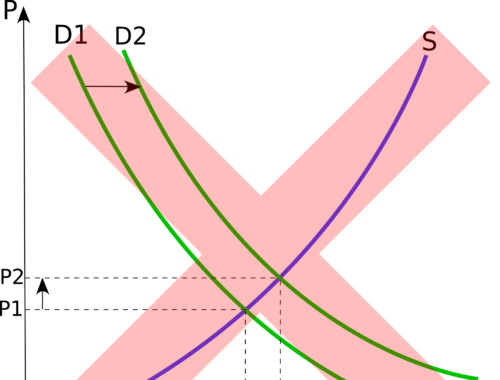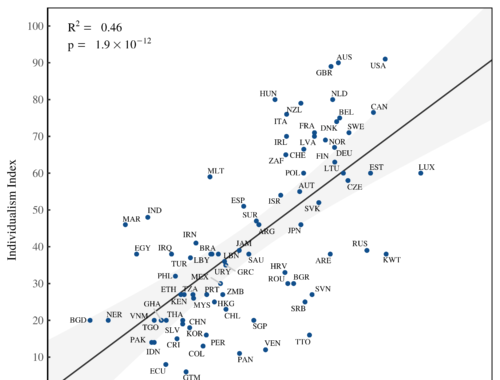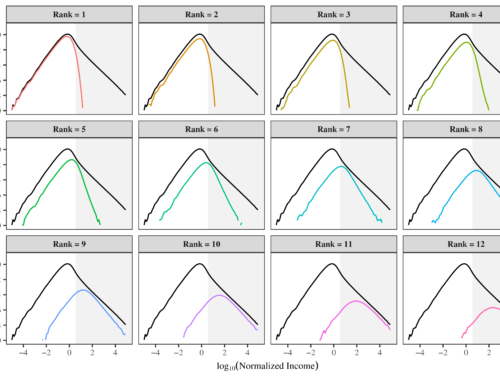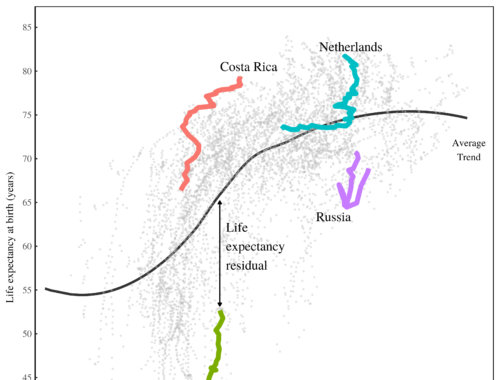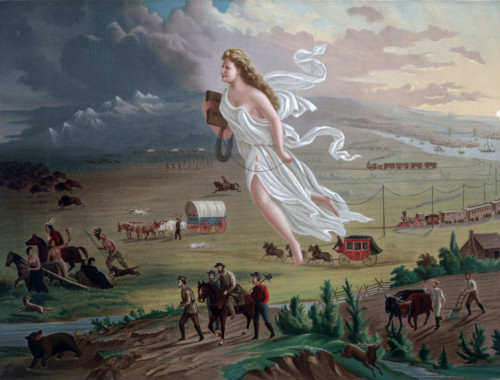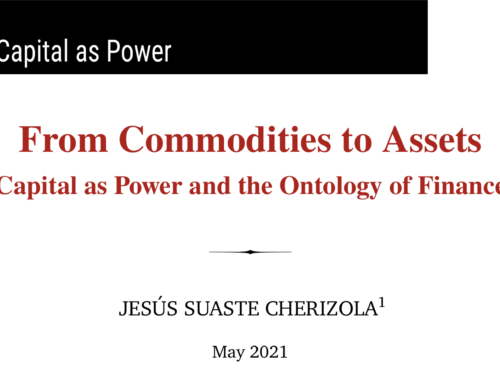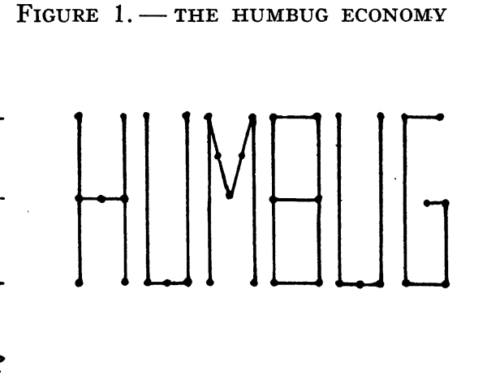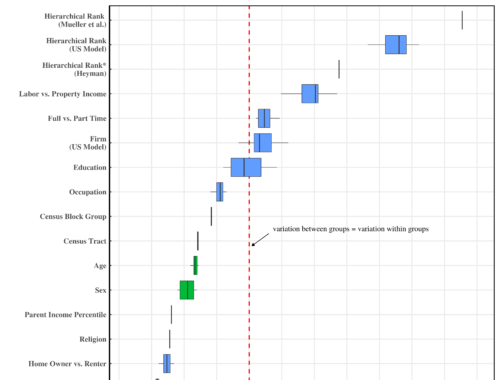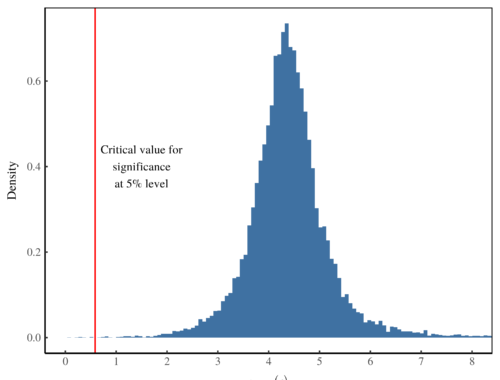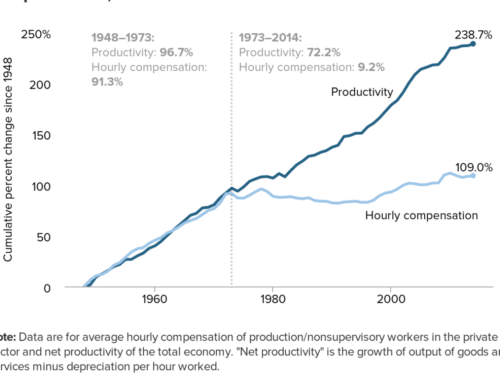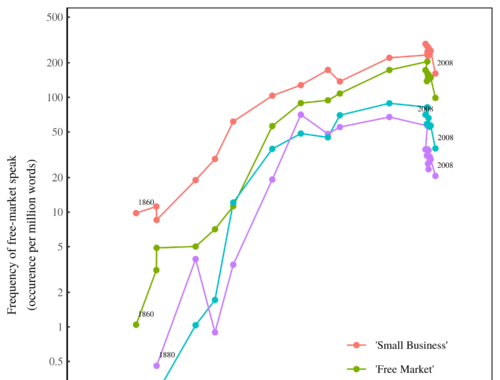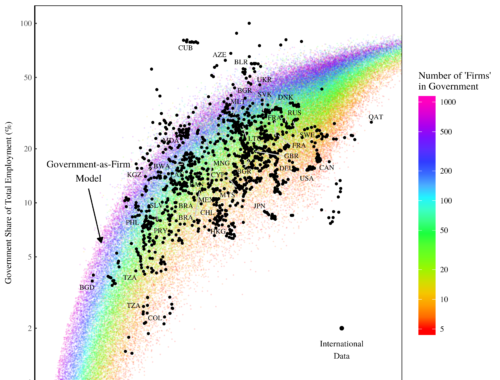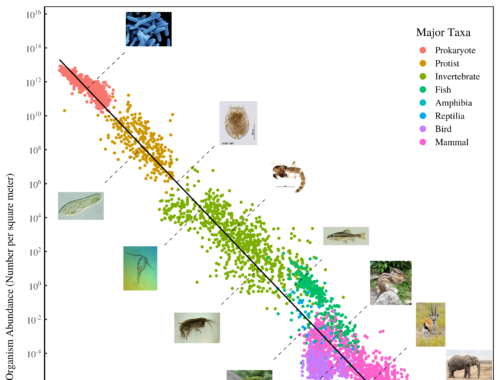Blog
Originally published on Economics from the Top Down Blair Fix A few weeks ago, evolutionary biologist David Sloan Wilson contacted me about an essay series he’s editing called Advice for an Aspiring Economist. The series …
Originally published at joefrancis.info Joe Francis Last year the eighth edition of the Penn World Table (PWT) was released to considerable fanfare – indeed, one commentator described it as ‘a special day for all researchers …
Originally published at pluralistic.net Cory Doctorow Comparing the government to a household or a business isn’t merely inapt (a government is a currency creator, while a household is a currency user – their budgeting constraints …
Originally published at sbhager.com Sandy Brian Hager Last month I had the pleasure of working on a new Common Wealth report entitled Commoning the Company with Mathew Lawrence, Adrienne Buller and Joseph Baines. In the …
Originally published on Economics from the Top Down Blair Fix Last fall, I wrote a short article for The Mint Magazine about how income relates to hierarchy. The Mint, if you’re not familiar, does great …
Originally published at joefrancis.info Joe Francis Jeffrey Williamson‘s (2011) book Trade and Poverty: When the Third World Fell Behind is one of the most interesting attempts to explain the ‘great divergence’ between rich and poor countries. It is …
Originally published at pluralistic.net Cory Doctorow One of the most exciting, eye-opening articles I’ve read in AGES. Showing how shareholder capitalism is a lie BY ITS PROPONENTS’ OWN TERMS…Genius. https://lpeblog.org/2020/02/18/privatizing-sovereignty-socializing-property-what-economics-doesnt-teach-you-about-the-corporation/ Marx thought individual property would …
Originally published at sbhager.com Sandy Brian Hager For four years now I’ve been teaching a postgraduate module called Global Political Economy: Contemporary Approaches. This is one of two core modules for our MA programme in …
Originally published on Economics from the Top Down Blair Fix In the field of ecological economics, Frederick Soddy looms large. Born in 1877, Soddy became a chemist and eventually won a Nobel prize for work …
Originally published at joefrancis.info Joe Francis Andre Gunder Frank’s Lumpenbourgeoisie, Lumpendevelopment was published in 1972, almost half a century ago. Reading it now, it is surprising how contemporary it seems. Most notably, in a few …
Note from Blair Fix: In a series of essays published in 2013 and 2014 on capitaspower.com, political economist Tim Di Muzio explored the concept of ‘sabotage’ as it applies to capitalist power. I recently rediscovered …
Originally published at pluralistic.net Cory Doctorow Reagan turned the country upside-down, in a very bad way. The “Reagan revolution” was indeed revolutionary (or, rather, counter-revolutionary), reversing a half-century of progress on social safety nets, workers’ …
Originally published at sbhager.com Sandy Brian Hager Earlier this month in Berlin I participated in the third workshop of the “Doing Debt” research network. I received the invitation back in May and was asked by …
Originally published at joefrancis.info Joe Francis Recently the Economist published a front-page feature on ‘The Tragedy of Argentina: A Century of Decline‘. By summarising the current scholarship on the ‘Argentine paradox’, the article demonstrates why the study of …
Originally published at sbhager.com Sandy Brian Hager The following piece is based on my State of the Art article in Socio-Economic Review. It was originally published for The Conversation and the World Economic Forum Global …
Originally published at joefrancis.info Joe Francis I never met my grandsupervisor (the PhD supervisor of my PhD supervisor), but I have enjoyed reading his rants. One in particular made a major impression upon me. In Mickey …
Originally published at notes on cinema James McMahon Your movie turned out the be a flop? “Nobody knows anything”. You mistakenly believed consumers wanted to see a movie set in the 1920s? “Nobody knows anything”. …
Originally published at dtcochrane.com DT Cochrane I recently saw a misleading presentation of COVID data pertaining to Israel. In this post I’m sharing several graphs that I made to counter this misleading image. Israel is …
Originally published at sbhager.com Sandy Brian Hager I put together Figure 1 for a paper I will be presenting at the 29th Annual Meeting of the Society for the Advancement of Socio-Economics in Lyon this summer. The …
Originally published at notes on cinema James McMahon Part 1 introduced Scorcese’s argument in his Harper’s essay, which was about much more than Fellini. The first part also explained how we can connect Scorcese’s essay …
Originally published at sbhager.com Sandy Brian Hager With the academic term winding down, I thought it would be useful to post some reflections on my teaching experiences this past year. In total, I taught three …
Originally published at notes on cinema James McMahon Ridley Scott’s Exodus: Gods and Kings is a telling example of Hollywood rationalizing its so-called inability to widen the boundaries of its creativity. In this case, the …
Originally published at sbhager.com Sandy Brian Hager I’m spending some time during these summer months developing a new undergraduate course on wealth and income inequality. Branko Milanovic’s wonderful new book Global Inequality: A New Approach …
Originally published at notes on cinema James McMahon What is more pleasurable: reading Martin Scorcese on cinema or reading reactions to Scorcese on cinema? The reactions compete for our pleasure because they reveal how easy …
Originally published on Economics from the Top Down Blair Fix If you listen carefully, you can hear Jeff Bezos getting richer. There’s the sound again. Another billion in Bezos’ coffers. Let’s put some numbers to …
Originally published at dtcochrane.com DT Cochrane In Part 2, I looked at the shifts in U.S. household consumption that occurred during WWII. While aggregate consumption increased alongside massive government intervention, the qualitative mix of that …
Originally published at dtcochrane.com DT Cochrane In Part 1, I explained the motivation for this series. I want to use the analogy of WWII, as invoked by economists JW Mason and Mike Konczal in an …
Originally published at dtcochrane.com DT Cochrane Economist JW Mason recently tweeted the following: Bloomberg writer Peter Coy was motived to perform this research by an NYT op-ed from Mason and Mike Konczal. Mason and Konczal’s …
Originally published on Economics from the Top Down Blair Fix Donald Trump took an IQ test … you’ll never guess what he scored! Apologies. That was my attempt at clickbait.1 Now that I’ve hooked you, …
Originally published on Economics from the Top Down Blair Fix Prices are caused by supply and demand, right? So say neoclassical economists. If you’ve bought their fairy tale, I recommend you watch the video below. …
Originally published on Economics from the Top Down Blair Fix In the early 1970s, Geert Hofstede discovered something interesting. While analyzing a work-attitude survey that had been given to thousands of IBM employees around the …
Originally published on Economics from the Top Down Blair Fix They say that a picture is worth a thousand words. In science, the corollary is that a good chart is worth a whole article. Okay, …
Originally published on Economics from the Top Down Blair Fix How can we live the ‘good life’ without killing the planet? My last post on energy and empire got me thinking about this question. We …
Originally published on Economics from the Top Down Blair Fix They called him the ‘Little Emperor’. Romulus Augustus — better known as Romulus ‘Augustulus’ (‘Little Augustus’) — was the last Western Roman Emperor. He assumed …
Originally published on Economics from the Top Down Blair Fix I’ve always been baffled why ‘modern monetary theory’ is called a theory. I don’t mean this in a disparaging way. As far as theories of …
Originally published on Economics from the Top Down Blair Fix As some of you may know, I recently became the editor of the Review of Capital as Power (RECASP), a journal that publishes research on …
Originally published on Economics from the Top Down Blair Fix If it is very easy to substitute other factors for natural resources, then there is in principle no “problem”. The world can, in effect, get …
By Cassandra Jeffery1 and M. V. Ramana2 The “largest bribery, money-laundering scheme ever perpetrated against the people and the state of Ohio” came to light during an unexpected press conference in July 2020 in Columbus. …
Tim Di Muzio1 PDF version available here The phrase, ‘there’s a sucker born every minute’ is typically attributed to the American showman, P.T. Barnum and was made infamous since the mid-19th century by gamblers, hucksters …
Originally published on Economics from the Top Down Blair Fix I’ve written a lot on this blog about the absurdity of marginal productivity theory. But I haven’t said much about the other pillar of mainstream …
Originally published on Economics from the Top Down Blair Fix If the history of science has taught us anything, it’s that we can’t trust our preconceptions about how the world works. All human societies have …
Originally published on Economics from the Top Down Blair Fix Today I’m going to revisit a topic that a month ago I committed to stop writing about — the productivity-income quagmire. Neoclassical economists argue that …
Originally published on Economics from the Top Down Blair Fix Have you heard of the ‘productivity-pay gap’? It’s the (apparently) growing gap between the productivity of US workers and their pay. Here’s what it looks …
Originally published on Economics from the Top Down Blair Fix As social animals, humans live and die by the success of our groups. This raises a dilemma. What’s best for the group is often not …
Originally published on Economics from the Top Down Blair Fix In this two-part post, I’ve been reflecting on the challenges of doing revolutionary science. (See Part 1 here.) I’ve argued that revolutionary science — the …
Originally published on Economics from the Top Down Blair Fix Science is miraculously improbable. To work, it must fight against a deep human instinct — our desire to conform. As social animals, humans are built …
Originally published on Economics from the Top Down Blair Fix Governments are different than firms, right? Perhaps not. In Part 1 of this series, I argued that when it comes to size, governments behave like …
Originally published on Economics from the Top Down Blair Fix Originally published on Economics from the Top Down. I have a confession. I’m a political economist by trade, but I spend most of my time …


